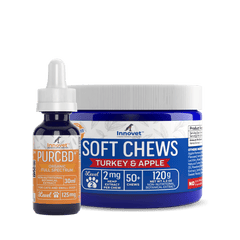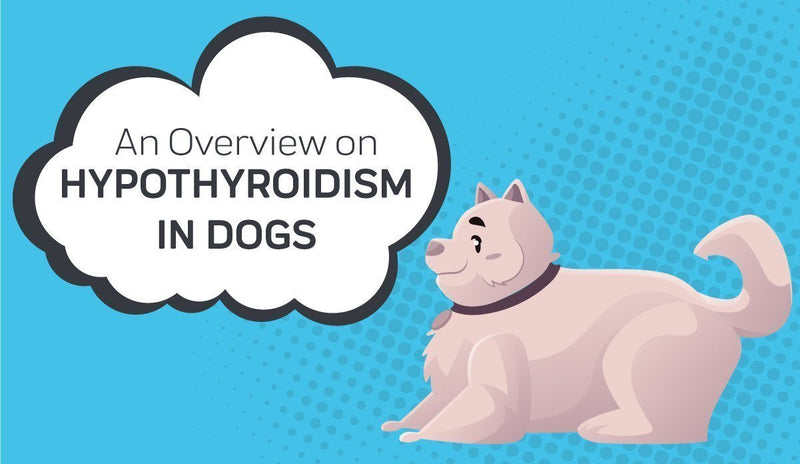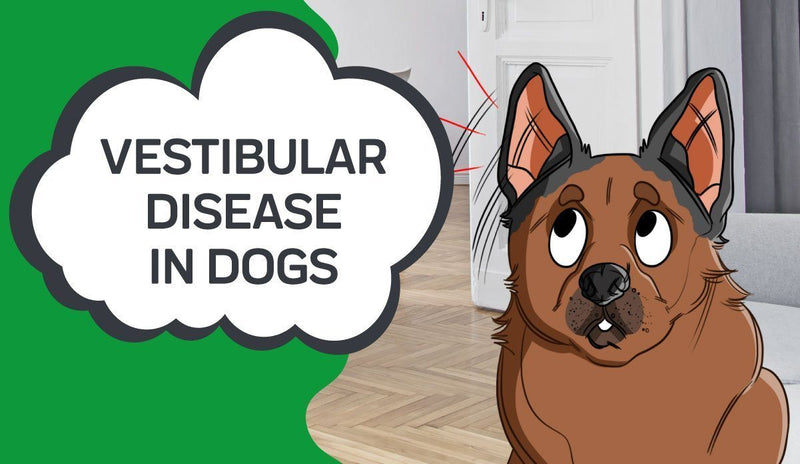
Kidney disease is a severe condition which is fairly prevalent among dogs. As a matter of fact, kidney disease dogs is the most common health condition affecting dogs over age 8! Even worse, it has a variety of serious symptoms. Thankfully, pet owners effectively can manage these dog with kidney failure symptoms through the use of CBD (cannabidiol). It’s a natural hemp plant extract. CBD has a high effectiveness and safety profile.
A stringent diet in along with a CBD Oil kidney failure routine may offer excellent results for treating symptoms of canines that have kidney disease.
CBD Dog Treats: What are they?
They’re treats for dogs with kidney problems which contain a cannabis extract referred to as CBD (cannabidiol). These days you easily can find these natural remedies for kidney failure in dogs treats on the internet or within specific areas in which CBD is available like the Innovet Pet Products website. CBD belongs to a class of compounds called cannabinoids that attach themselves to cannabinoid receptors all throughout a dog’s body.
Collectively, the receptors comprise the ECS (endocannabinoid system) which has multiple positive effects.
CBD rapidly is becoming the preferred cannabinoid in the treatment of various ailments (which includes kidney disease) in dogs. It’ll metabolize easily and virtually has no side effects for your pet. CBD isn’t psychoactive like THC (tetrahydrocannabinol).Therefore, whether you offer your dog CBD capsules, CBD oil, or CBD dog treats it won’t confuse or intoxicate your pet. Also, CBD has a stellar “safety profile” because it’s impossible to overdose on.
Innovet Pet Products CBD Oil and Treats Bundle for Large Dogs
Innovet’s dog hemp package is specifically put together to encourage the general well-being and health of your dog. This blend is ideal for daily health maintenance and offering enjoyable treats for dogs with kidney failure on the go or at home. Shopping for all your dog’s needs may be overwhelming because of the numerous possible products you can purchase, which is the reason why we developed this all-in-one care CBD and kidney function package. If we have the ability to make life easier for you while assisting your dog in enjoying better health, we have done our job!
Our first product in the package is a 750 milligrams proprietary PurCBD oil bottle. Our CBD exclusively is sourced from hemp that is grown on organic farms and regularly test it through a 3rd-party to ensure that no undesired additives make their way inside your dog’s supplement. Innovet uses the purest ingredients and just sell products they use on their own pets.
The second product in Innovet’s package is a bag of Maple Bacon and Berries hemp hard treats. These were especially made for medium to larger dog breeds. They are ideal for dogs requiring a bit more. Your dog will like these!
CBD Helps Symptoms for Canines that have Kidney Disease
 CBD Oil and Kidney Disease
CBD Oil and Kidney Disease
So, what are the symptoms of kidney disease in dogs? The following list is a part of what conditions CBD may be able to effectively help manage in both humans and pets. CBD provides various positive effects on canines. As you’ll see most of those symptoms are the same as the CKD symptoms, meaning CBD makes an outstanding natural candidate for aiding in the relief of symptoms of canines that have kidney disease.
CBD assists in managing these kidney disease symptoms in dogs:
- Acting as an efficient painkiller
- Decreasing inflammation all throughout the body
- Helping manage depression, anxiety, and/or agitation
- Aiding your dog in getting healthy rest
- Providing relief for muscle spasms and/or tremors
- Managing dog seizure disorders
- Increasing levels of “good” fat and promoting a healthy heart
- Stabilizing blood sugar levels in order for them to be beneficial and healthy
- Sustaining appetite at healthy levels
Beware of Symptoms of AKD and CKD
Kidney disease is a severe dog condition. It either can be AKD (acute kidney disease) or CKD (chronic kidney disease).
CKD also is referred to as “renal failure”. It’s a condition which happens over an extended time period, typically with a deteriorating prognosis. Acute kidney disease is a result of one situation which causes the kidney failure. Canines may develop acute kidney disease after they consume toxic substances like poisonous foods, antifreeze, and medications.
As a loving pet owner, it’s important to pay attention to your pet’s usual behavioral patterns. If you see your pet veering away from their usual happy behavior it might indicate that something is wrong. If you notice any one or more of these kidney failure in dogs symptoms in your pet you should take him to a vet.
Symptoms of AKD and CKD:
- Vomiting/nausea
- Disorientation/problems with coordination
- Tarry or black feces/bloody diarrhea
- Bad breath (because of a buildup of toxins inside the dog’s body)
- Lethargy/fatigue
- General gastrointestinal distress/constipation
- Depression/agitation/anxiety
- Severe weight loss/loss of appetite
- Comas/seizures
- Acute blindness
- Hematuria (blood in the urine)
- Excessive thirst/urination
- Death
As you can see, CBD effectively can help manage various symptoms for canines that have kidney disease. The most remarkable element of this CBD and kidney disease supplement is that it’s delicate on your pup’s metabolism. That means it’ll efficiently manage the condition and overlying symptoms without taking a toll upon your pup’s body.
Keep in mind, if your pooch experiences some type of kidney disease, their general system already is compromised and weakened. As a consequence, you only should offer them a medical supplement which doesn’t place extra pressure on their physiology, metabolism or general health.
Proper Diet for a Canine that has Kidney Disease
Healthy kidneys are critical to your pup living a healthy life. The responsibility of a canine’s kidney includes helping him effectively expel waste from his body in the form of urine. Imagine the kidneys as huge filtration devices which take all of the fluids in your pup’s body, aids them then keeps the stuff the body requires while dumping the waste and/or toxins it doesn’t need.
A healthy diet is such a vital aspect of maintaining your pup’s kidney. But if the kidney degrades, the importance of a managed diet is necessary. There isn’t any cure for kidney disease in canines; therefore, the next solution includes managing the symptoms as best as you can.
The 4 main goals for managing chronic kidney disease in dogs:
- Treat all symptoms and reduce the quantity of waste that accumulates inside the blood.
- Reduce side effects of imbalanced bodily fluids, as well as mineral levels (like sodium, potassium, and/or phosphorous).
- Offer adequate nutrition and nourishment.
- Slow down the progression/development of CKD, which includes both the underlying condition and overlying symptoms.
Maintaining correct nutrition fulfills all these goals. It’s vital to craft a diet which takes into consideration the changes in your pet’s metabolism because of the weakened state of the kidneys. Think about the following changes and additions to your pet’s general diet to keep the disease under control.
Diet recommendations for dogs that have kidney disease:
Eggs
The protein that is found in eggs is the simplest form for canines to digest. It’s better to primarily use egg whites with around one yolk per each three eggs.
Vitamin A
Think about administering vitamin A supplements as they help to lubricate the kidneys. The suggested dosage for dogs is 100 to 200 IU for every kg of body weight a day.
Vitamin C
Due to their incapability of breaking down a variety of waste product and toxins, canines with kidney disease have alkaline blood. The use of vitamin C in acidic form (from cranberries, juniper berries, or parsley) or from supplements will assist in balancing the pH.
Herbs
There are various herbs which boost the function of your pet’s weakened kidneys, which includes gluten-free brewer’s yeast, kelp, alfalfa, and green tea.
Water
It’s the most critical addition; make certain that your pet gets as much water as possible. Also, it includes changing from dry dog food to canned, moist food (which has a high water content level).
The right kidney support diet for canines that have kidney disease:
- Omega-3 fatty acids – 0.4 to 2.5 percent
- Sodium – Less than 0.3 percent
- Phosphorous – 0.2 to 0.5 percent
- Protein – 14 to 20 percent
If you stick with these dietary limitations while using CBD as an additional supplement in the overlying kidney disease symptoms, your dog ought to show significant improvement in their condition.
Ingredients to Avoid
It’s important that a canine with kidney disease be given a diet that won’t place more undue stress on their kidneys.
Within the broadest sense, that means the diet has to consist of food sources that have lower levels of:
- Nitrites (like sodium nitrite)
- Nitrates (like potassium nitrate)
- Sodium (which includes sodium chloride, or table salt)
- Gluten (products that are made from wheat)
- Calcium
- Potassium
- Phosphorous
- Protein
- Fat
- Sugar
Some of those have to be decreased in higher levels than other ones, and it’s always better to confer with your vet to figure out how better to structure your pet’s new diet.
Is Peanut Butter alright for Dogs that have Kidney Disease?
Thankfully, peanuts are a type of nut that’s extremely low in phosphorous, which means that it additionally has low levels of that particular mineral. In addition, peanut butter has moderate protein levels which may easily be more metabolized by your pup’s weakened kidneys. The best type of peanut butter is a low-sodium, additive-free, and organic product.
It’s especially vital that you avoid any peanut butter brands which have been artificially sweetened using xylitol. The ingredient is among the most poisonous to canines, and in some instances even may lead to death. Check the product’s label in question and be certain that it doesn’t have xylitol!
Foods to Avoid
There are several different foods to be avoided by all canines, yet particularly so in dogs that have kidney disease. If consumed it might mean dire consequences for our pet. As a matter of fact, grapes, nutmeg, xylitol, dark chocolate, and raisins are considered to be the most harmful common food sources that poison canines.
Because the kidneys play such an important part in the general metabolism of your pooch, if they aren’t properly functioning, it’ll become essential to restrict the types of food that your furry friend can consume. There are numerous foods which essentially become off-limits for canines that have kidney disease, which includes:
Dark Chocolate
Dark chocolate always is toxic to all canines due to the existence of calcium, potassium, and theobromine. Furthermore, the rawer and darker the chocolate is, the greater the levels of theobromine are. The chemical compound may cause seizures, muscle tremors, irregular heartbeat, internal bleeding, and a possibly deadly heart attack.
Legumes
Lentils and beans both have high potassium levels. If your pup suffers from kidney disease, the productivity of the organ gets decreased and metabolizing potassium places undue strain on the animal’s metabolic system. As a consequence, the mineral starts building up in your pet’s blood and eventually leads to possibly irreversible heart damage.
Egg Yolks
Due to their reduction in productivity, your pet’s diseased kidneys will have a hard time filtering the high phosphorous levels which are present in egg yolks. Phosphorous takes calcium from the bones; therefore, if it reaches a high concentration in your pet’s blood, it’ll lead to a weakened skeletal system.
Cured Ham
The ham curing process comprises of injecting the ham with either sodium nitrite or potassium nitrate. They’re both antioxidants and kinds of salt which are utilized to preserve the ham, prevent it from spoiling, and give it a characteristic color and taste. But potassium nitrate might lead to kidney stones, particularly if the kidneys aren’t functioning correctly. Moreover, the usage of sodium nitrite results in high sodium levels, therefore elevating blood pressure and further damaging the kidneys.
Fatty Foods
If your pet suffers from kidney disease, their odds of getting pancreatitis are a lot greater if they consume foods which are excessive in fat (like bacon, for instance). Don’t entirely cut out fat out, as it’s an important aspect of a healthy diet. It only is necessary to avoid excessively fatty food sources.
Dairy Products
Milk is extremely rich in phosphorous, potassium, calcium, and protein. The kidneys have the job of filtering those minerals, as well as stabilizing their levels in your pet’s circulatory system. You don’t want your pet’s kidney to work harder than it needs to.
Turkey, Chicken, and Fish
All these meats are especially high in phosphorous. However, there are meats which are low in phosphorous, like minced pork, lamb, as well as beef.
Bananas, Citrus Fruits, and Avocados
All these fruits are very high in potassium. Again, the mineral will require healthy kidneys to sustain proper levels within your pup’s metabolic system.
Alcohol
It’s obvious that alcohol always is toxic to canines, yet if they suffer from kidney disease, it’s especially harmful. The majority of dogs don’t touch alcohol except for toothpaste and a variety of dental products which are sold and designed for dogs. Avoid all alcohol if your pup suffers from kidney disease.
Walnuts
Walnuts are very toxic for your pet, even if they’re in excellent health. Consumption of any part of a walnut is harmful, which includes the wood, shells, nuts, and husks.
Wild Mushrooms
If your pet spends a good amount of time in the woods, they might tend to root around inside the ground for wild mushrooms because they have the odor of fish to a dog. It’s extremely risky as some mushrooms already are very toxic, even if your pet has healthy kidneys.
Xylitol
Xylitol an artificial sweetener that’s toxic to healthy canines and possibly deadly to dogs that have kidney disease.
Raisins and Grapes
Raisins and grapes are very poisonous for dogs and may lead to acute kidney failure! It’s a fact even if your pet isn’t suffering with kidney disease. The APCC (Animal Poison Control Center), in 2004, assessed one year’s worth of information and came to the conclusion that of 140 cases of raisin/grape poisoning in canines, 50 developed severe symptoms of acute kidney failure and seven died.
Nutmeg
Nutmeg is a household spice that’s extremely toxic and possibly deadly for all dogs, particularly the ones that have kidney disease. Scientists don’t really know why it’s so harmful.
CBD Dog Treats and Additional CBD Products
Using CBD treats may help pet owners with the underlying kidney disease and the overlying symptoms which cause so much distress and pain to our furry friends. It is also possible to use CBD capsules, CBD Oil (tincture), to administer CBD to your pet.
Each of those CBD products are going to supply your pet’s system with the CBD it requires. But, for the best results, the majority of dog owners utilize a CBD oil tincture for routine dosing and CBD treats intermittently between doses.
If you need to try CBD treats, it is possible to use them not just as a medical supplement yet as an incentive for proper behavioral modification and training. Also check out our new botanical supplement chews for great nutrition!
Sources:
Cannabinoids and appetite
Cannabidiol in Anxiety and Sleep
Trial of Cannabis for Essential Tremor
Cannabidiol Attenuates the Appetitive Effects
Cannabinoids as novel anti-inflammatory drugs
Use of Cannabidiol in the Treatment of Epilepsy
Cannabinoids in the management of difficult to treat pain
Cannabidiol as a Potential Treatment for Anxiety Disorders
Antidepressant-like and anxiolytic-like effects of cannabidiol
Is the cardiovascular system a therapeutic target for cannabidiol?
Approved by:
Dr. Sara Ochoa
Doctor of Veterinary Medicine, St. Georges University

Thanks for stopping by!
P.S. We Love You!
Sincerely,
The Innovet Team
Please do not ask for emergency or specific medical questions about your pets in the comments. Innovet Pet Products is unable to provide you with specific medical advice or counseling. A detailed physical exam, patient history, and an established veterinarian are required to provide specific medical advice. If you are worried that your pet requires emergency attention or if you have specific medical questions related to your pet’s current or chronic health conditions, please contact or visit your local/preferred veterinarian, an animal-specific poison control hotline, or your local emergency veterinary care center.
Please share your experiences and stories, your opinions and feedback about this blog, or what you've learned that you'd like to share with others.


















